Why Bernie Sanders’ Supporters Say He's Still The Right Choice For 2020
In 2016′s Democratic presidential race, Sen. Bernie Sanders’ identity was clear. He was the radical progressive offering a distinct alternative to Hillary Clinton, whose experience and coziness with financial elites made her a convenient foil for the rumpled democratic socialist from Burlington, Vermont.
Sanders was the true believer who didn’t have to explain away voting for the Iraq War or praising the proposed Trans-Pacific Partnership trade pact. He had big, ambitious plans to fight economic inequality and climate change. He told millennial voters that the sky was the limit to their aspirations, and they rewarded him by packing stadiums to hear him speak.
In the end, Sanders didn’t win the nomination. But his agenda was a different story. He made Medicare for All, free college, fighting the influence of money in politics and reforming the presidential nominating process national Democratic priorities.
In the 2020 political cycle, the rationale is less obvious for a Sanders run, which he made official on Tuesday. A few months ago, The New York Times characterized him as a “victim of his own success,” with so many of the other contenders for the Democratic presidential nod embracing his ideas and trying to woo the party’s left wing.
There’s more than a little truth in this argument. In 2016, Clinton mocked Sanders’ commitment to Medicare for All. But now, six out of the nine declared Democratic presidential candidates have professed their support for the policy. That includes Sens. Cory Booker (N.J.), Elizabeth Warren (Mass.), Kamala Harris (Calif.) and Kirsten Gillibrand (N.Y.), who have co-sponsored Sanders’ single-payer bill in the Senate.
In announcing his candidacy, Sanders argued that his bid stands out because of his longstanding commitment to the progressive agenda and to harnessing bottom-up organizing to take on the forces obstructing progress.
“Maybe what distinguishes this campaign from the others is not only that these are, in fact, issues that we did raise ... but also that what I understand from the bottom of my heart ― that real change in this country will never come about unless there is struggle, unless millions of people stand up and fight for that change,” he told CBS News.
Many progressives say they’re sticking with him. Because even with so many Democrats running, there’s only one Bernie Sanders.
For proud democratic socialists who count Sanders as their sole self-described adherent in the Senate, the case is easy.
Sanders “is the best candidate — the only candidate who could be considered anything even close to socialist, and the one to beat” President Donald Trump, Amber A’Lee Frost wrote in a Jacobin magazine essay.
For the broader universe of Sanders supporters who aren’t necessarily affiliated with the Democratic Socialists of America, no one ― not even Warren ― has comparable progressive credibility or a proven record for mobilizing grassroots movements.
“There are candidates who are going to be spending a lot of time creating stories about their politics,” said Winnie Wong, a co-founder of the People for Bernie Sanders, one of the biggest grassroots groups backing him in 2016. “[Sanders] is still the standard bearer of progressive politics.”
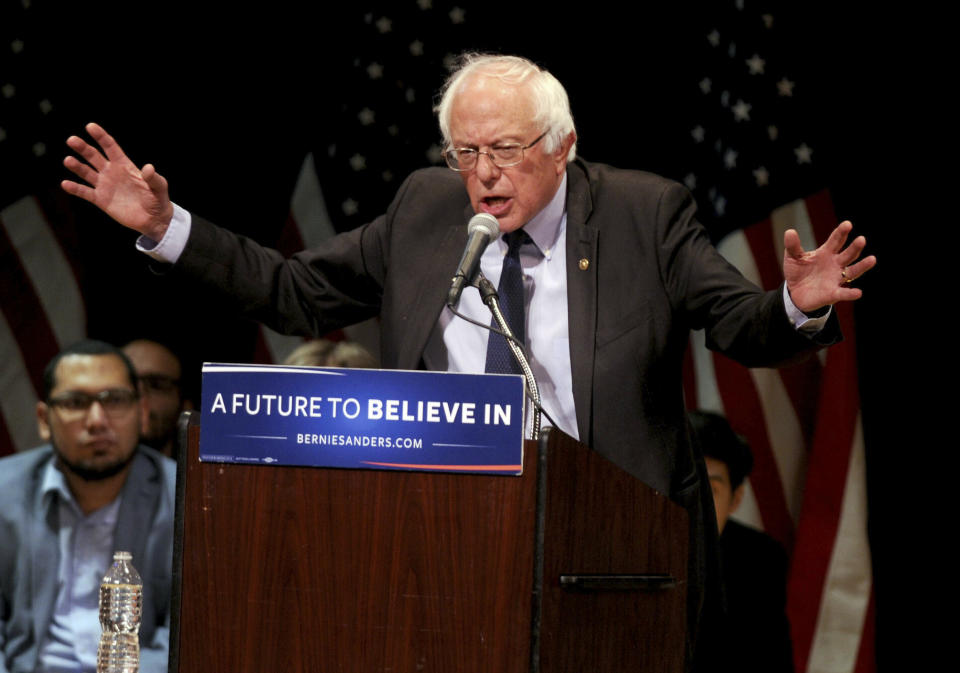
‘Bernie Came To These Ideas A Long Time Ago’
Trust is a major issue for Sanders’ supporters. His decades of lonely left-wing advocacy still feels more authentic to them than the current pronouncements by Democrats who jumped aboard the policy bandwagon after Sanders proved that there was a national constituency for it.
“Bernie came to these ideas a long time ago and he stayed with them when people were calling him crazy. So he’s authentic,” said Vincent Fort, a former Georgia state senator who co-chaired Sanders’ 2016 presidential bid in that state. “I don’t know if these other people necessarily believe what they’re saying. Some of them seem uncomfortable; some of them are hedging.”
Waleed Shahid, the communications director of Justice Democrats, a left-wing group that helped propel Alexandria Ocasio-Cortez to Congress with its backing as she scored her upset win in New York’s Democratic House primary last year, echoed Fort’s sentiments.
Though Shahid’s group has not yet endorsed in the Democratic presidential primary, he said that Sanders “has the longest track record out of any of the potential contenders of taking on oligarchy in this country.”
Sanders, indeed, has been decrying income inequality and a corrupt campaign finance system, as well as advocating the adoption of a European-style social democracy, from his days as the Burlington mayor in the 1980s.
A search of C-Span’s video archives yields clips of a Sanders with more hair and thicker glasses indignantly pushing the debate leftward on the floor of the U.S. House in the 1990s and into the new century. He called for a single-payer health care system in this 1993 speech; 10 years later, he used his perch on the House Financial Services Committee to rake then-Federal Reserve Chairman Alan Greenspan over the coals for Greenspan’s lack of concern over rising inequality and the loss of manufacturing jobs.
By contrast, Warren, who was a registered Republican from 1991 to 1996 but now is viewed as Sanders’ closest competitor on the left, signed on to Medicare for All just shortly before Sanders introduced his new single-payer bill in September 2017.
Harris came out in favor of the policy ― and Sanders’ legislation ― shortly before Warren; Booker and Gillibrand followed soon after the Massachusetts senator.
The degree of support among these other presidential prospects for the ambitious policy has been ambiguous at times on the campaign trail.
Gillibrand, in her first campaign trip to Iowa, used the phrase “Medicare for All” to refer to a Medicare buy-in. Booker also focused on a buy-in or a lower eligibility age for Medicare as a more plausible option in the near term than outright single payer during his trip to the Hawkeye State earlier this month.
Harris suggested in a CNN town hall last month that she wanted to do away with private health insurance, but her staff subsequently clarified that she is open to many paths to universal coverage.
Warren didn’t mention Medicare for All prominantly in her first campaign swing through Iowa in mid-January, though she gave it a shout-out in her official launch in Lawrence, Massachusetts, on Saturday.
Dr. Abdul El-Sayed, the former Detroit health director who vied unsuccessfully for Michigan’s Democratic gubernatorial nomination last year with Sanders’ backing, sees the Vermont senator’s consistent support for single payer as a key rationale for his renewed White House candidacy.
“The reason Medicare for All is so important … is that it ends this game of collusion between big insurers and big providers,” said El-Sayed, who remains neutral in the 2020 primary race.
Love HuffPost? Become a founding member of HuffPost Plus today.
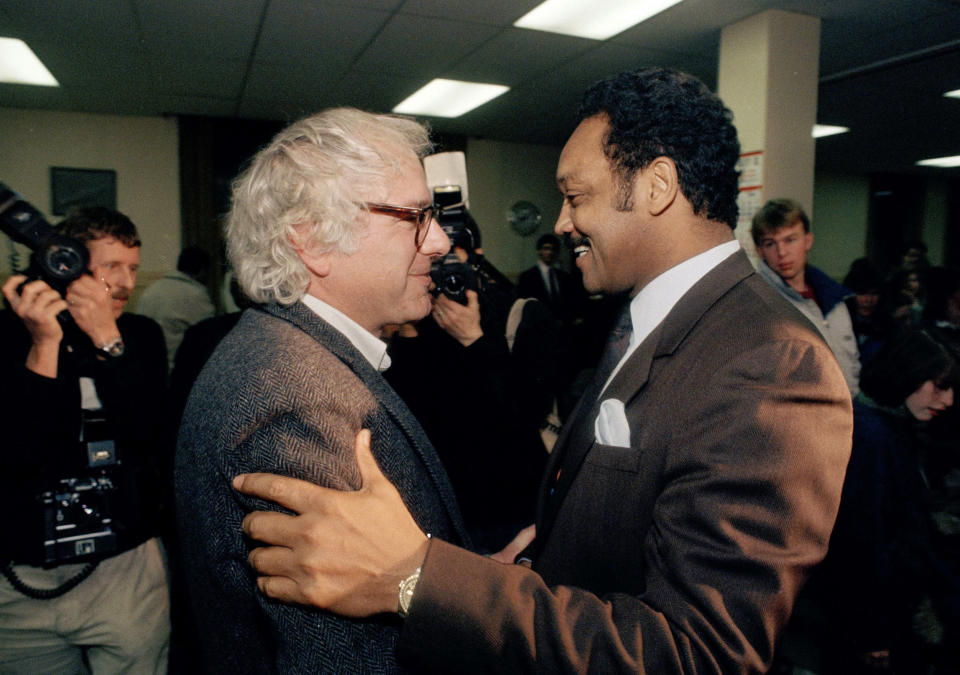
A New Foreign Policy
One area where Sanders appears to tout more radical aspirations than his rivals is in reshaping U.S. foreign policy.
Sanders’ anti-interventionist foreign policy is as old as his commitment to social democratic reforms like Medicare for All. During his mayoral years, he traveled to Nicaragua to voice his opposition to then-President Ronald Reagan’s efforts to overthrow that nation’s left-wing Sandinista government.
Sanders’ opposition to “regime change” policies of all kinds produced one of the most viral moments of his 2016 primary debates with Clinton: His dramatic disavowal of controversial foreign policy authority Henry Kissinger, whom he declared he was “proud” to say is “not his friend.”
In the aftermath of the ’16 race, Sanders has sought to address criticism that he lacked foreign policy expertise. He hired former Center for American Progress expert Matt Duss as a foreign policy adviser and developed a vision of a progressive American foreign policy that promotes the U.S. leading a coalition against rising right-wing authoritarianism while not using military force to shape outcomes in foreign nations.
With help from Duss, Sanders also has become the leading face of efforts to withdraw U.S. support for Saudi Arabia’s brutal military intervention in Yemen. In December, the Senate passed a resolution he co-sponsored with Sens. Mike Lee (R-Utah) and Chris Murphy (D-Conn.) officially withdrawing the chamber’s blessing for U.S. support of the Saudi coalition’s operations.
His advocacy on Yemen and his foreign policy focus more broadly is “an incredible differentiating factor for him relative to others” in the Democratic race, El-Sayed said.
Claire Sandberg, who helped craft Sanders’ volunteer-run organizing network in 2016, said Democratic voters “want to see a candidate who is standing up for human rights and for peace, and who is against militarism and against the U.S supporting undemocratic regimes and human rights atrocities like the war in Yemen.”

A Penchant For Grassroots Organizing
While other announced or potential presidential contenders in the Democratic race who claim the left mantle are untested on the national stage, Sanders in his last campaign demonstrated he could galvanize a national movement capable of generating thousands of volunteers and over $220 million in donations ― with more than half of that total in increments of less than $200.
That positions him far ahead of the other contenders in terms of the size of a small-donor base. Since 2012, an estimated 2.1 million Americans have contributed to Sanders online, according to a New York Times analysis released on Feb. 9. The only potential 2020 rival who is even close is former Rep. Beto O’Rourke (D-Texas), with 743,000 individual contributors.
Sanders, of course, has the benefit of a presidential run. Given the opportunity, some of the others in the Democratic race might rack up comparable figures.
Indeed, some are already putting up impressive numbers. Harris raised over $1.5 million from 38,000 people in the first 24 hours after she announced her candidacy in mid-January. But Sanders bested Harris’ donor total within four hours of announcing his run, attracting contributions from more than 42,000 people.
Sanders’ supporters say his fundraising prowess is a testament not only to the potency of his populist message, but to his knack for bottom-up organizing.
“He’s got the ideas, but he knows that to make change you have to go into the places ― the church basements and neighborhood associations, the kind of places he cut his teeth on being mayor,” said Fort, the former Georgia lawmaker.
Since Sanders’ expectation-defying but ultimately unsuccessful 2016 run, he has invested in growing his network further. He hired Armand Aviram, a veteran of NowThis, to create an online video presence that NBC News dubbed “Bernie TV.”
Sanders’ Senate Facebook page, which has 7.5 million likes, now functions as an alternative medium replete with explanations of arcane policy fights and introductions to the work of various activists. Through his own digital platform and various partnerships with progressive media outlets, Sanders streamed live town halls on Medicare for All, income inequality and climate change that all drew at least 1 million views.
“There were a lot of people who were shaped by the political revolution that Bernie was at the head of,” Wong said. “That social movement, those social forces are still very active today.”
Still, some veterans of Sanders’ 2016 bid have moved on. Becky Bond and Zack Malitz, engineers of his volunteer-run organizing strategy, worked on O’Rourke’s failed 2018 Senate run in Texas and have pledged themselves to a possible O’Rourke presidential run.
But other key Sanders alumni remain in his corner. Tim Tagaris and Robin Curran, for example, plan to return as overseers of the Vermont senator’s digital fundraising operations.

What About Elizabeth Warren?
Sanders’ closest ideological ally ― and most natural alternative ― is Warren. Like Sanders, Warren has, with good reason, elicited the all-out opposition of Wall Street. She has a record of challenging corporate power and winning, including a 2016 grilling of then-Wells Fargo CEO John Stumpf that played a major role in his firing and the clawing back of his bonus.
Some Sanders diehards, however, consider Warren a non-starter because she has proudly described herself as a “capitalist” who “believe[s] in markets,” while Sanders is an avowed “democratic socialist.”
It’s a distinction that reflects deep disagreements about what kind of agenda the two lawmakers would prioritize in the White House, as David Dayen noted in an October analysis in The New Republic.
The focus of Warren’s career has been on turbo-charging regulation ― the “rules” of the proverbial game ― while Sanders has concentrated on expanding the social insurance system and empowering organized labor.
“He still thinks he can move the debate to the left on some of these issues,” said a senior aide to a progressive House member.
In other areas, like foreign policy, Sanders is also just genuinely more left-wing than Warren.
In a November speech rolling out her foreign policy, Warren dated the deterioration of U.S. foreign policy to the 1980s, which many critics pointed out was after the Vietnam War.
More recently, she did not comment on Trump’s decision to recognize the Venezuelan opposition leader Juan Guaidó as that nation’s president until HuffPost asked her about the issue at the end of January. She told HuffPost she opposes military action as well as the new U.S. sanctions on the Latin American nation, but did not clarify her stance on Guaidó.
It is unclear where Sanders stands on the recognition of Guaidó. But he reacted to U.S. efforts to intervene in the crisis unprompted days before HuffPost’s inquiry, warning against “regime change or supporting coups” and noting that the “U.S. has a long history of inappropriately intervening in Latin American nations.”
Sanders’ boosters emphasize that it’s his authenticity as a progresive, rather than considerations about electability alone, that draw them to him.
“There’s an electoral question ― who is best to beat Donald Trump; there’s a movement question,” said a Sanders aide who requested anonymity to speak freely. “But ultimately it’s a question about getting to a place in this country that should exist in terms of racial and economic justice, regardless of whether Trump ever existed.”
Industries that benefit from the status quo “are going to throw everything at a Democratic White House and Democratic Congress to protect their own interests,” the aide added. “One of the things about Bernie is that he has a total willingness to build a movement to fight those industries and get those things done.”
Also on HuffPost
NSA Surveillance
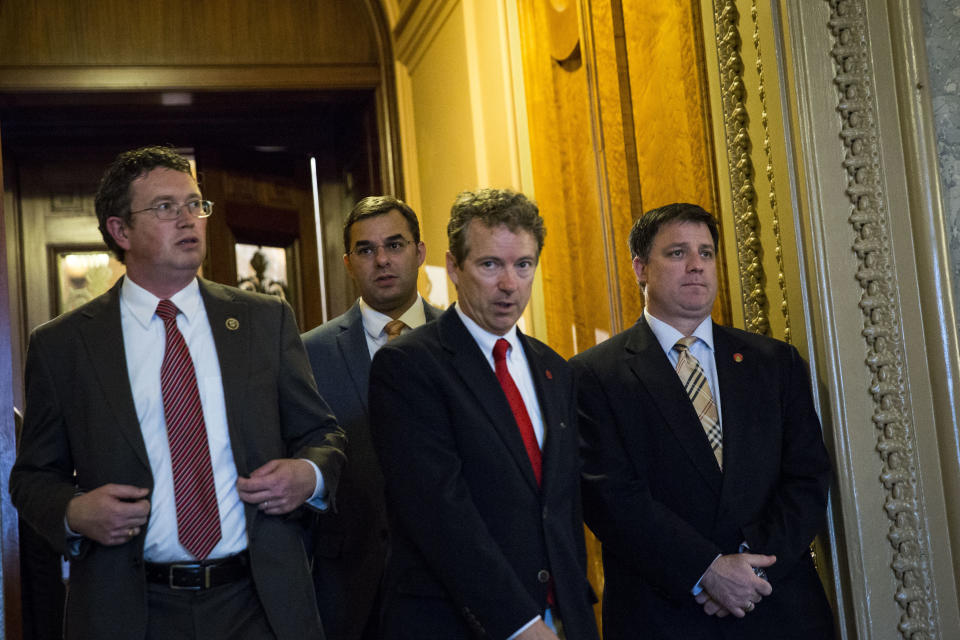
National Anthem
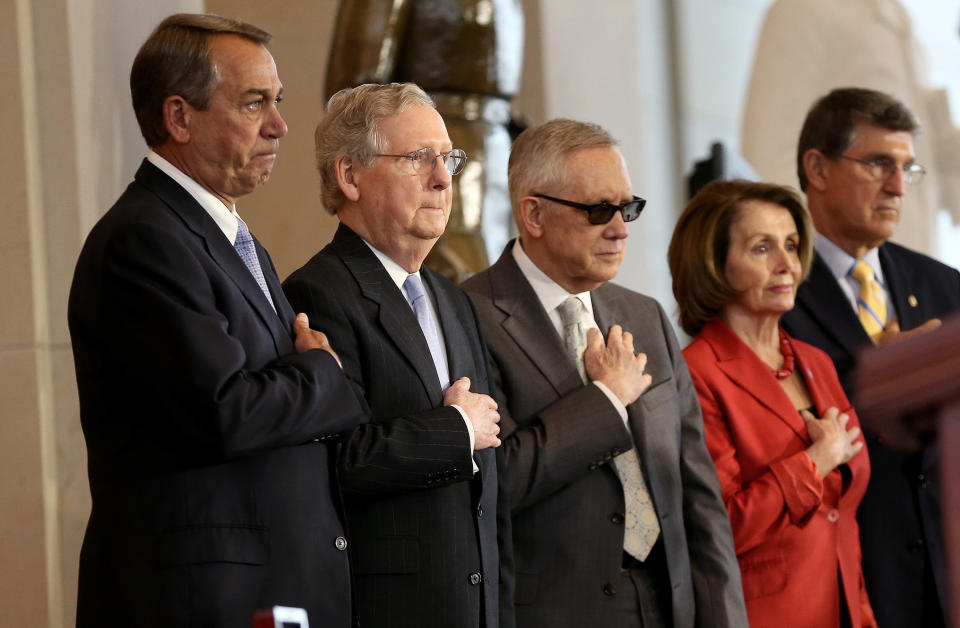
Remembering Officers
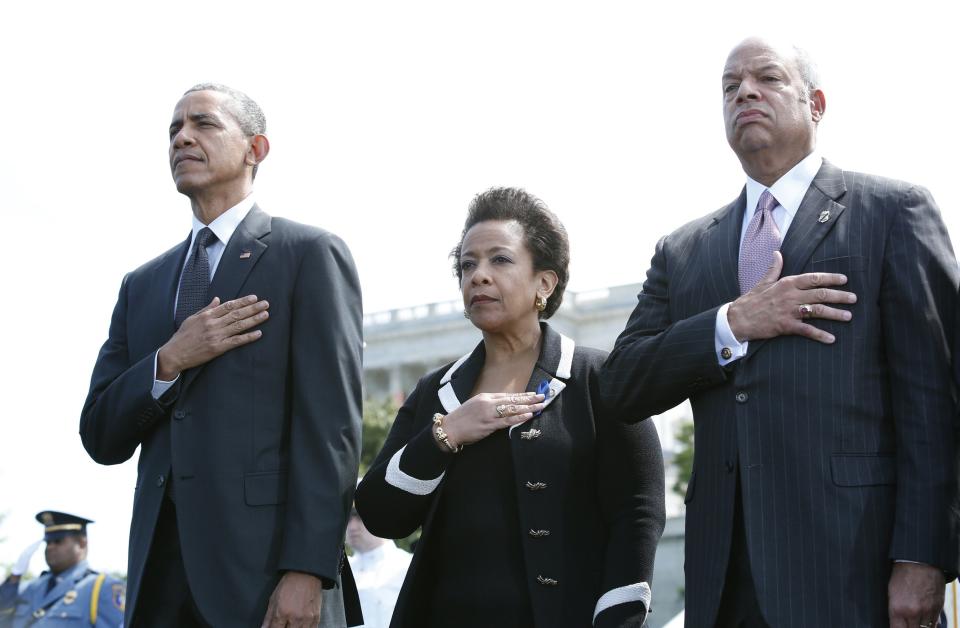
Elton John
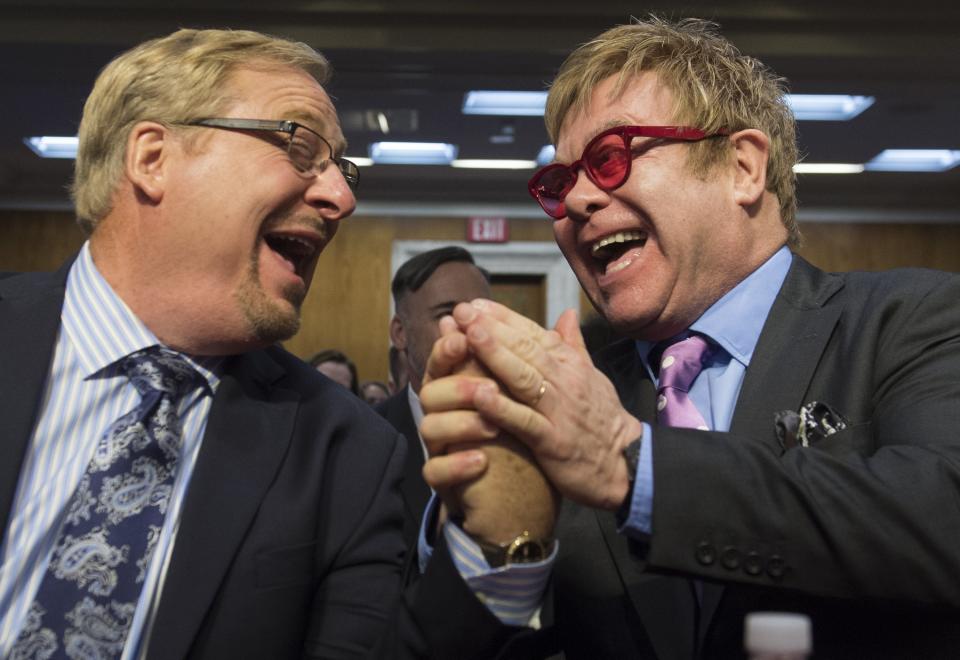
Loretta Lynch Testimony
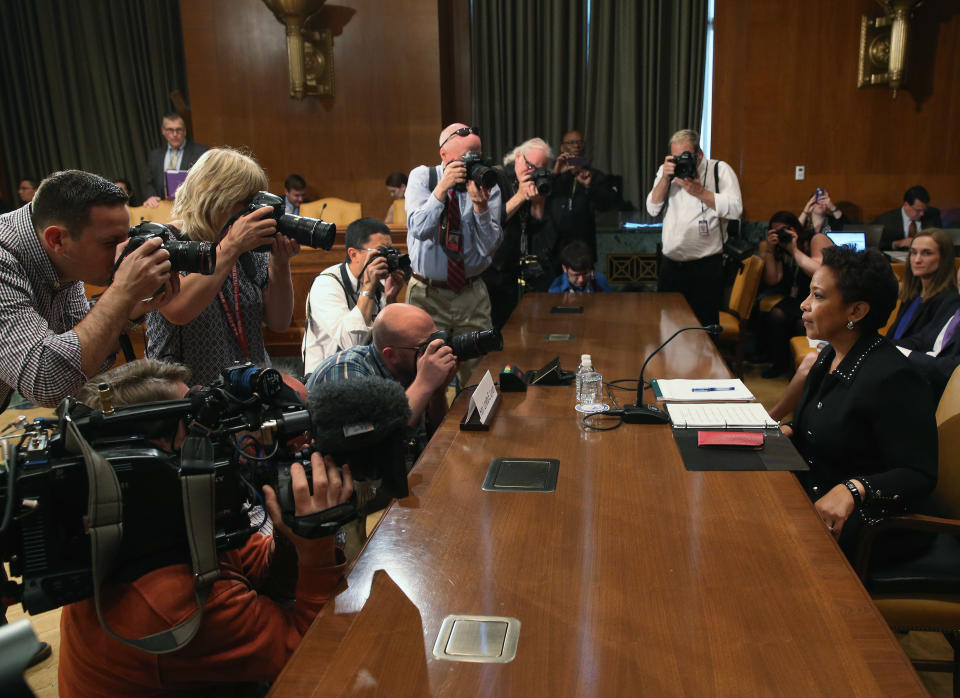
Bernie Runs
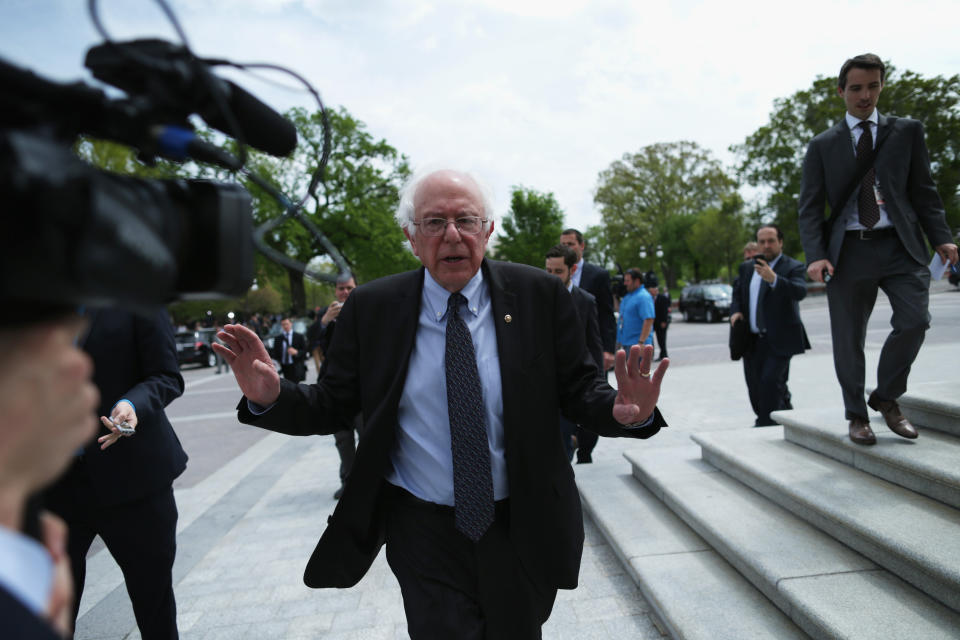
Japanese Prime Minister
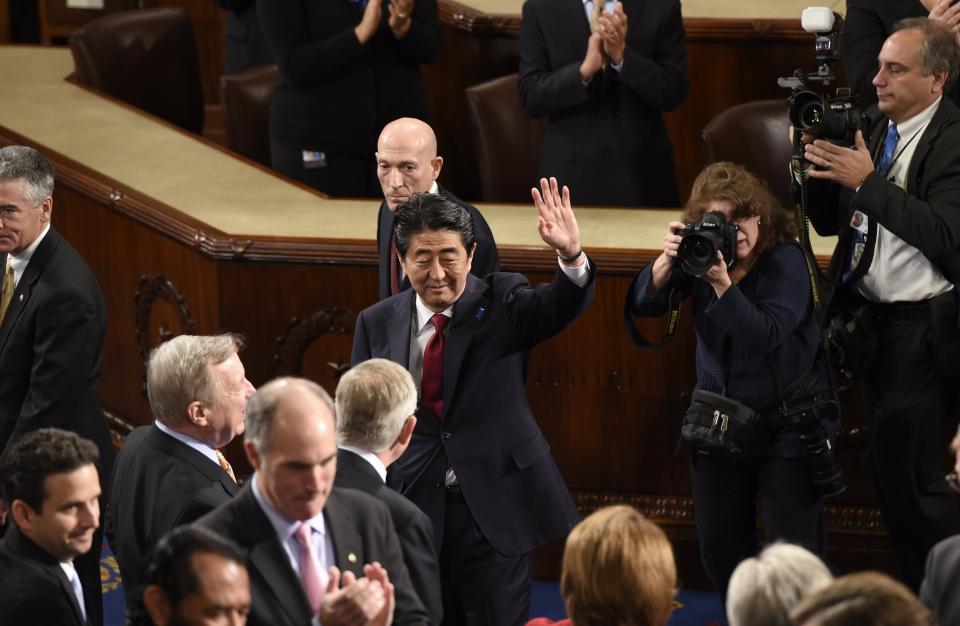
Subway Smiles
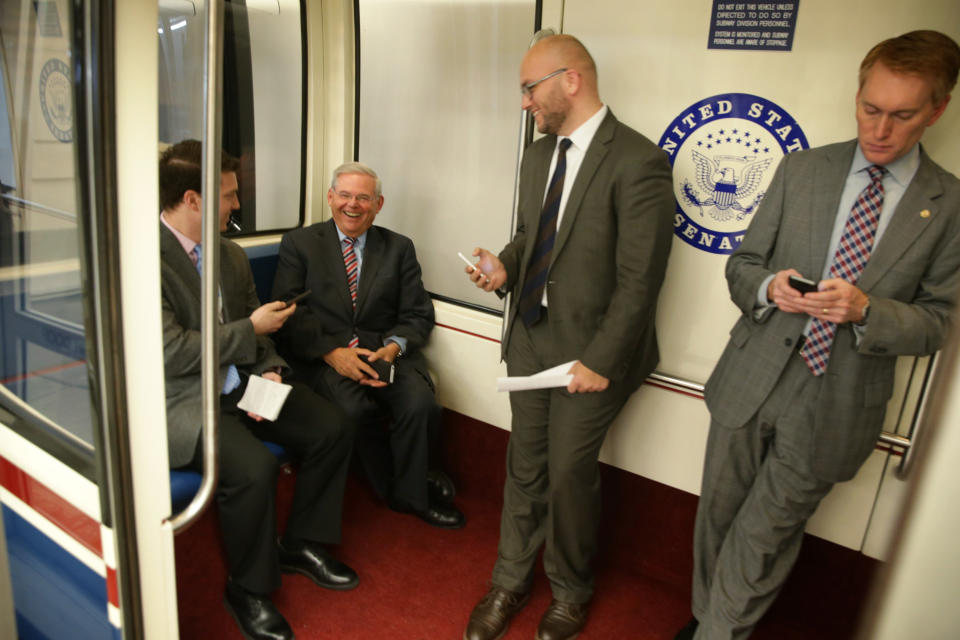
Hotdish Competition

Advocating For Loretta Lynch
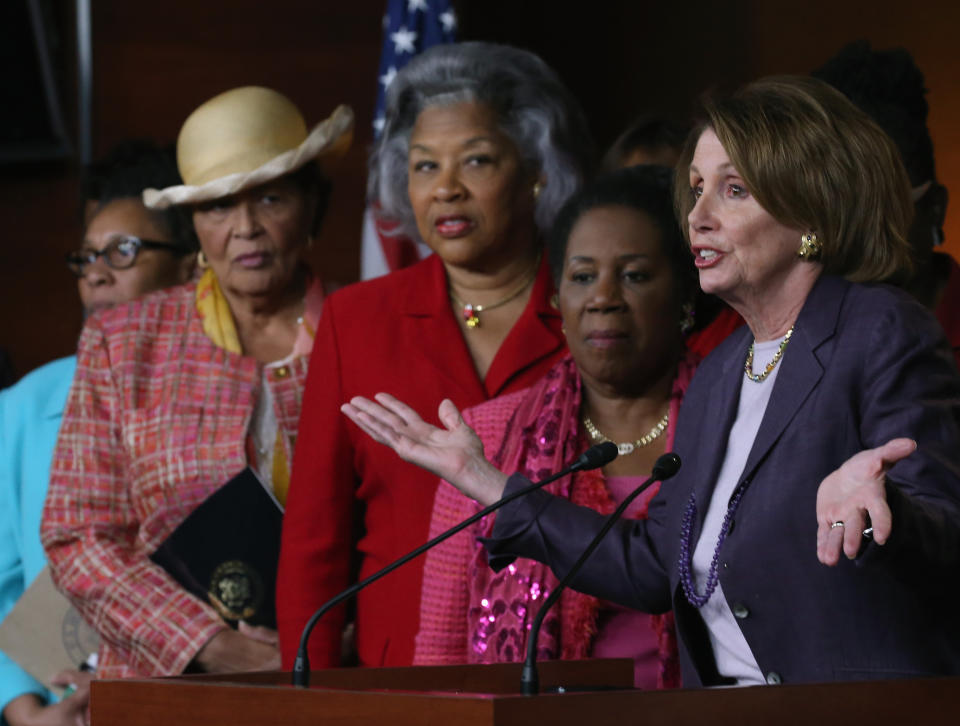
Justice March
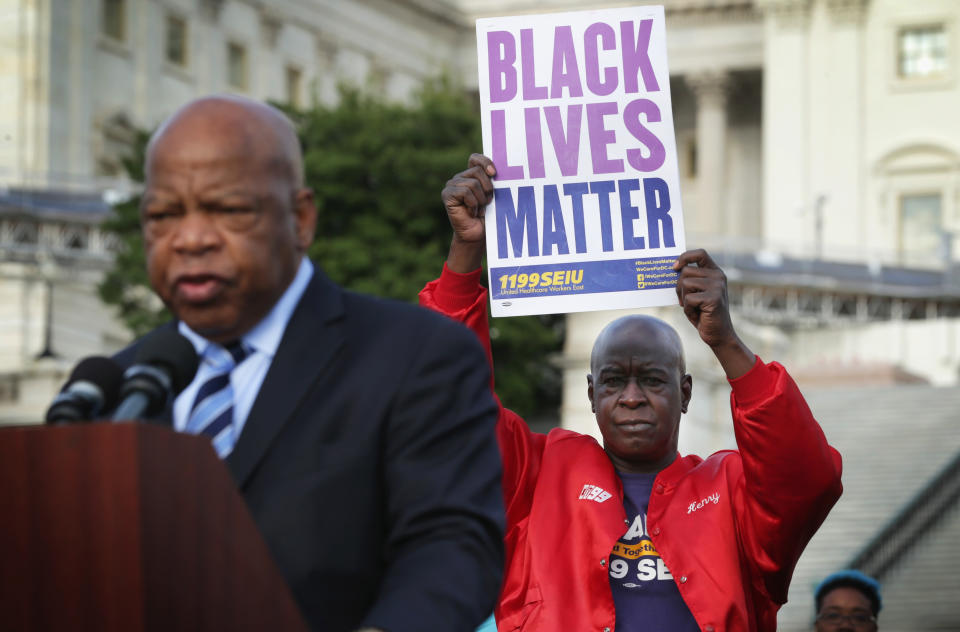
Special Guest
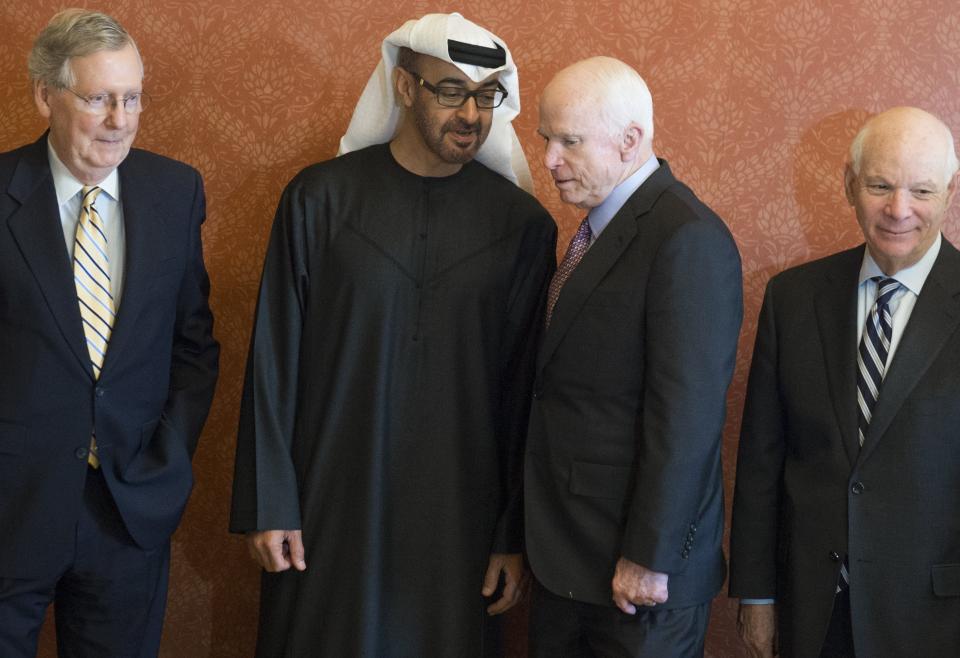
Gyrocopter At The Capitol

Secretary Of State Parade
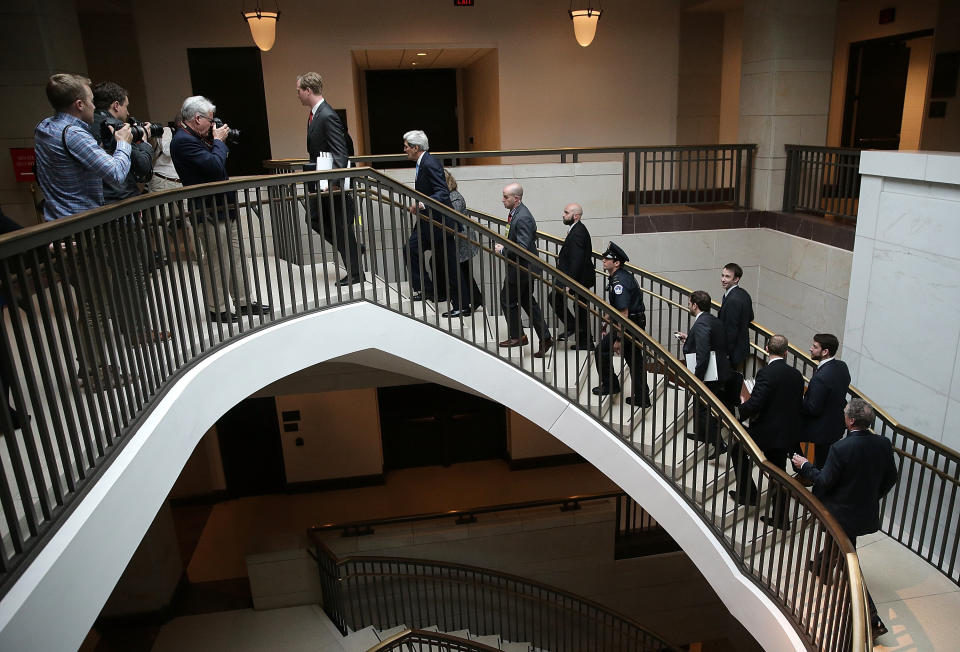
Harry Reid's Retirement
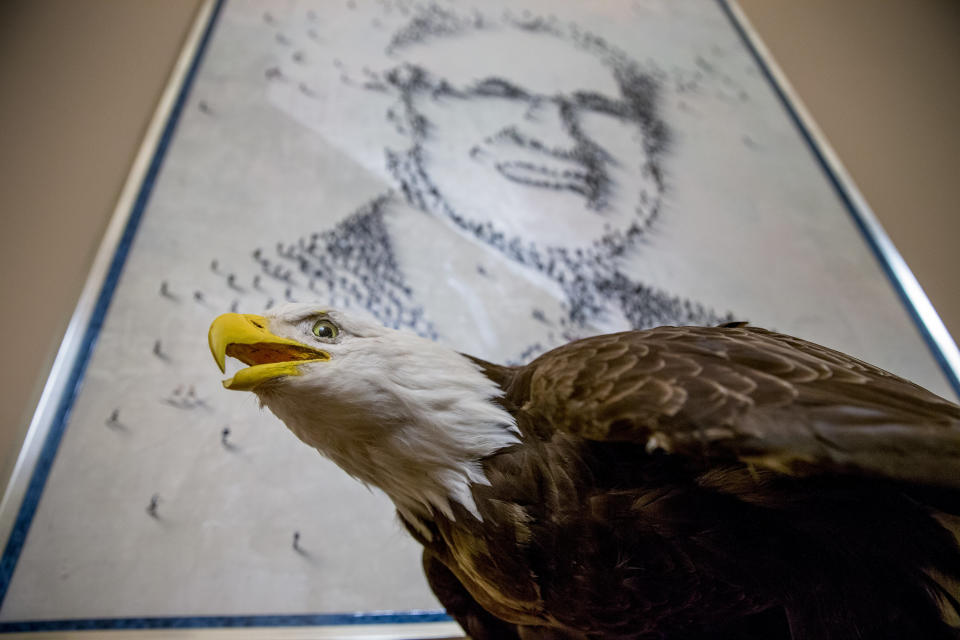
McCain Applauds
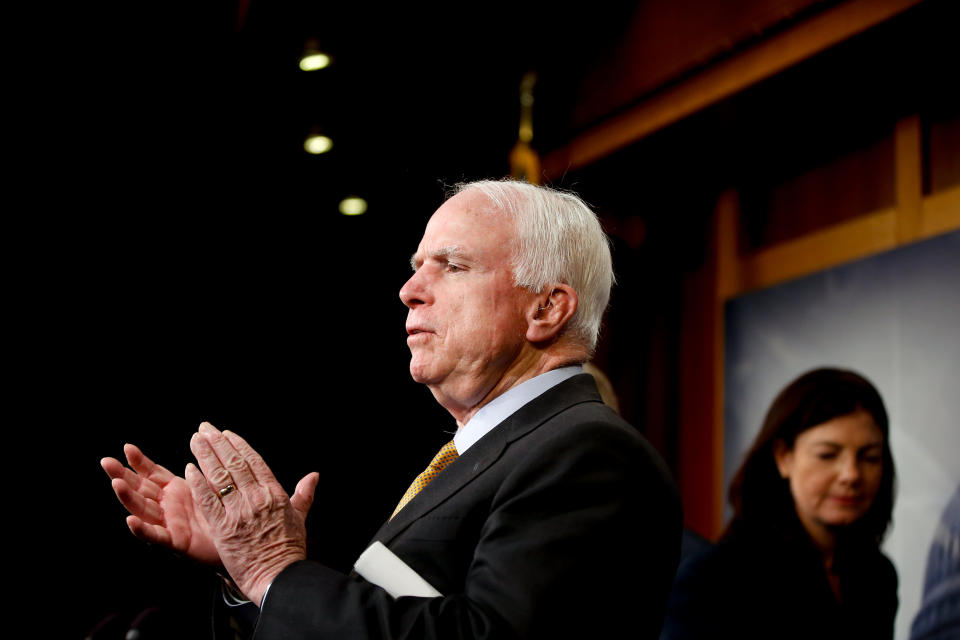
Ben Affleck
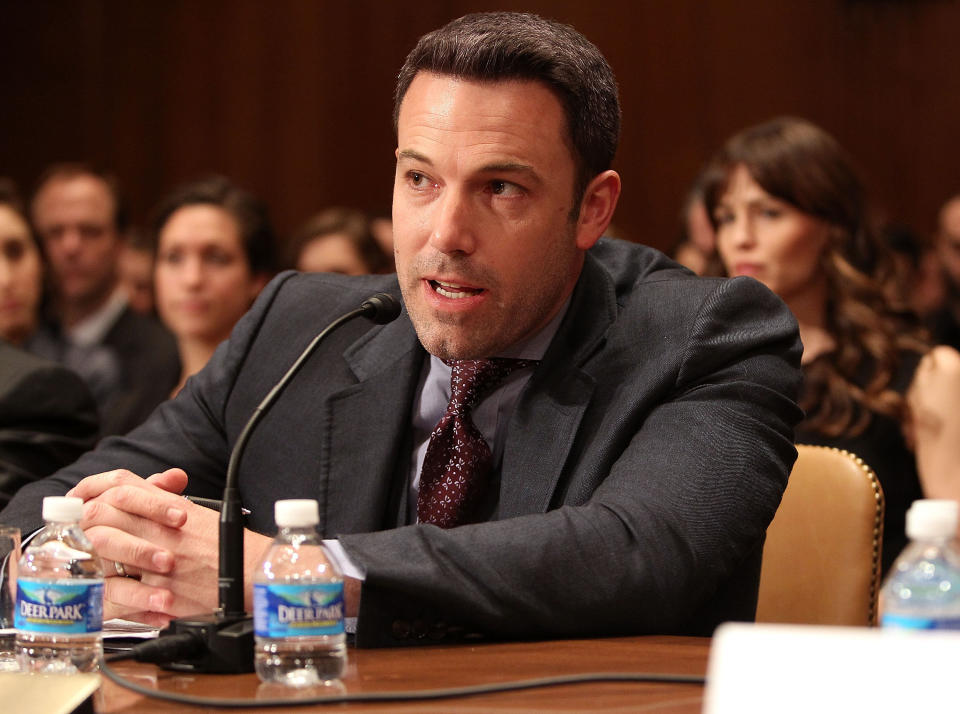
Bill Gates
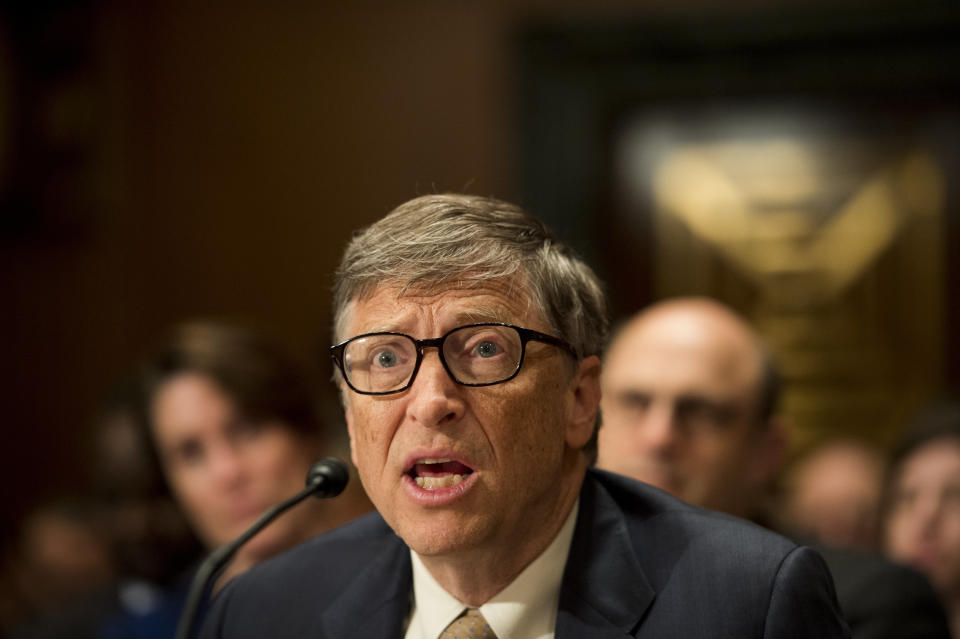
Twin Tears
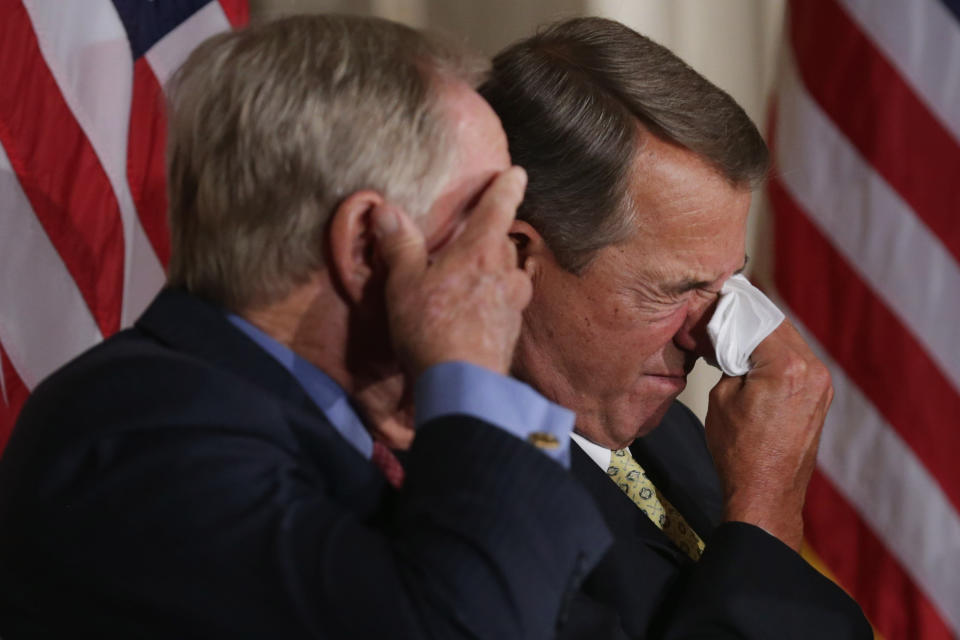
Affordable Care Act Anniversary
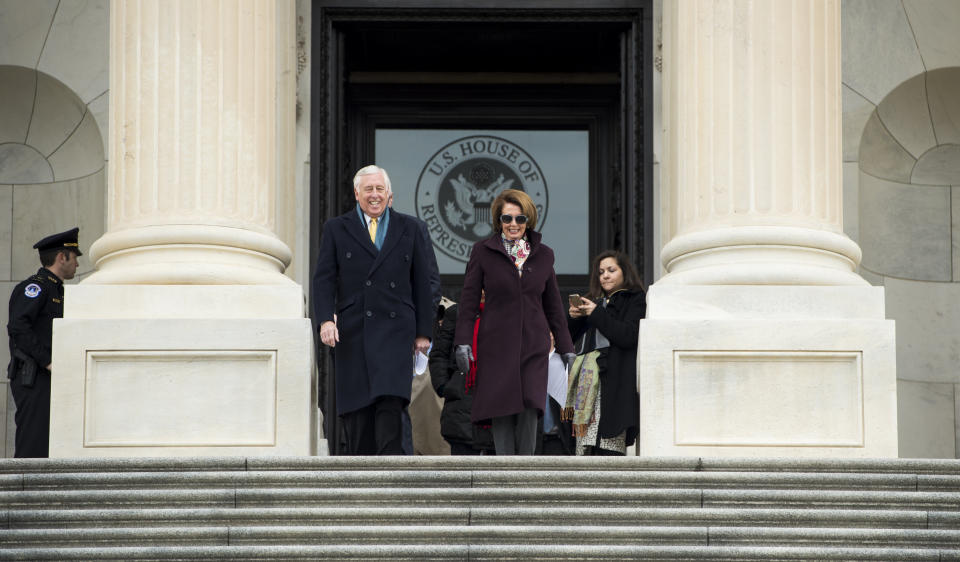
Meerkat In The House
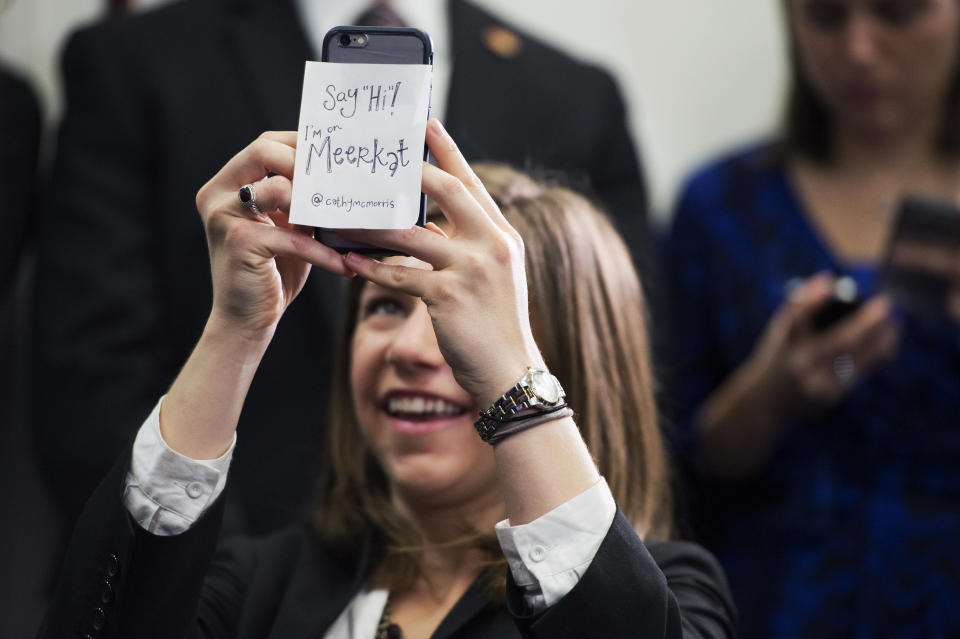
Congressional Gold Medal
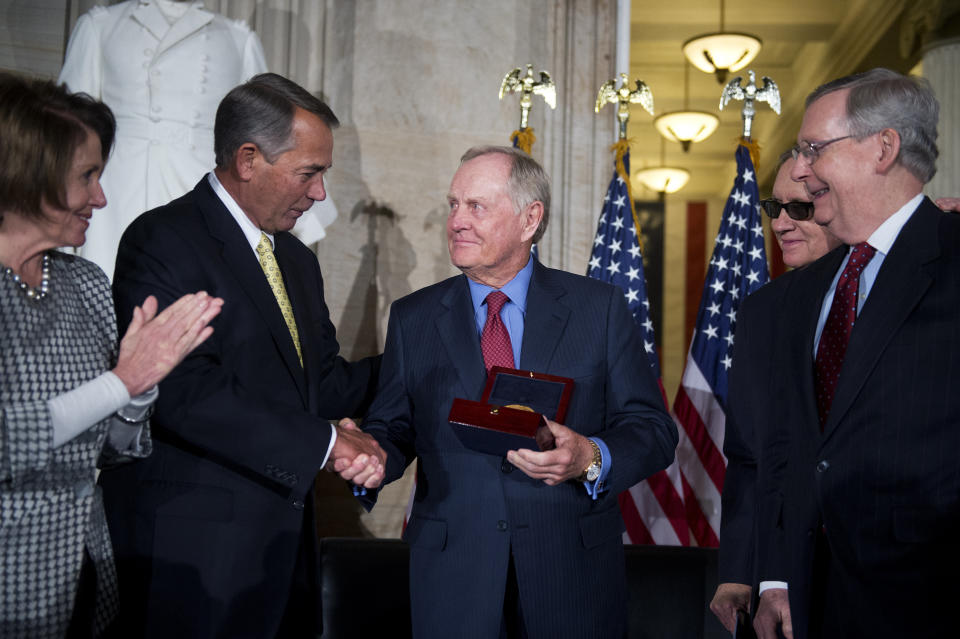
Secret Service Talks To Congress
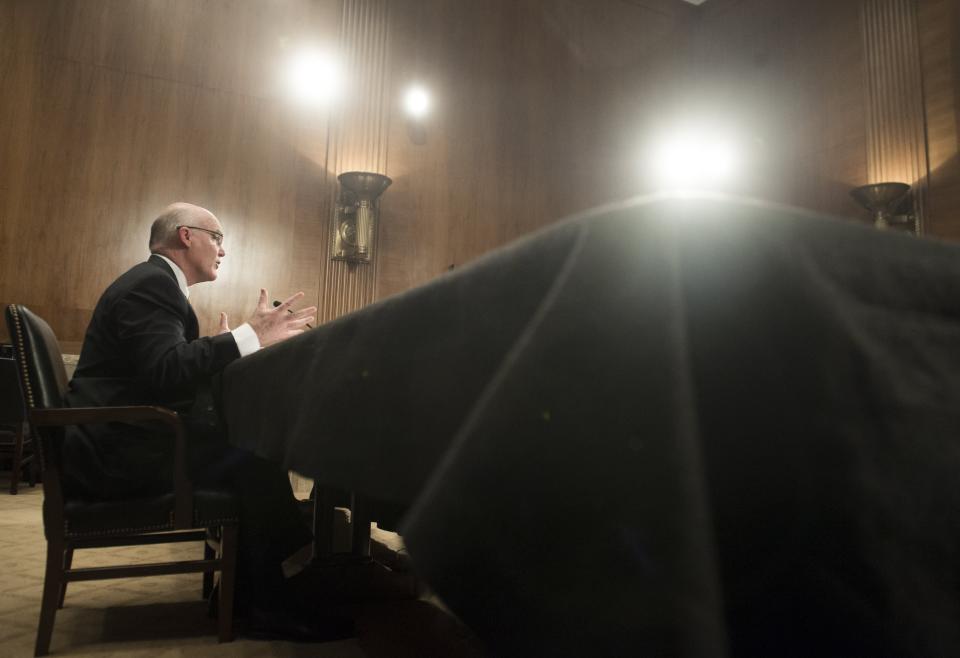
Spring Cleaning
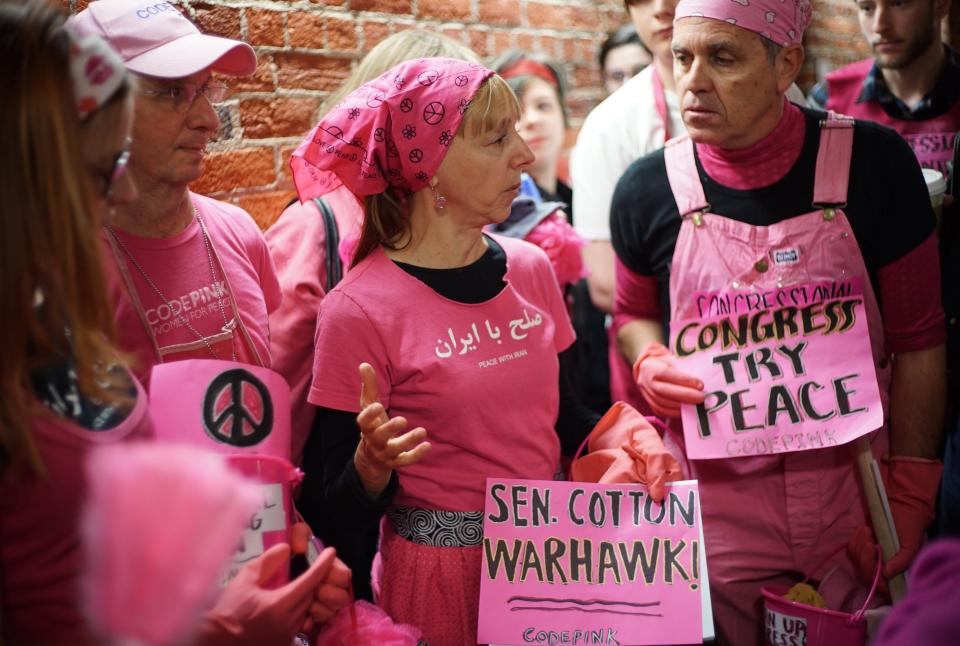
Supreme Women
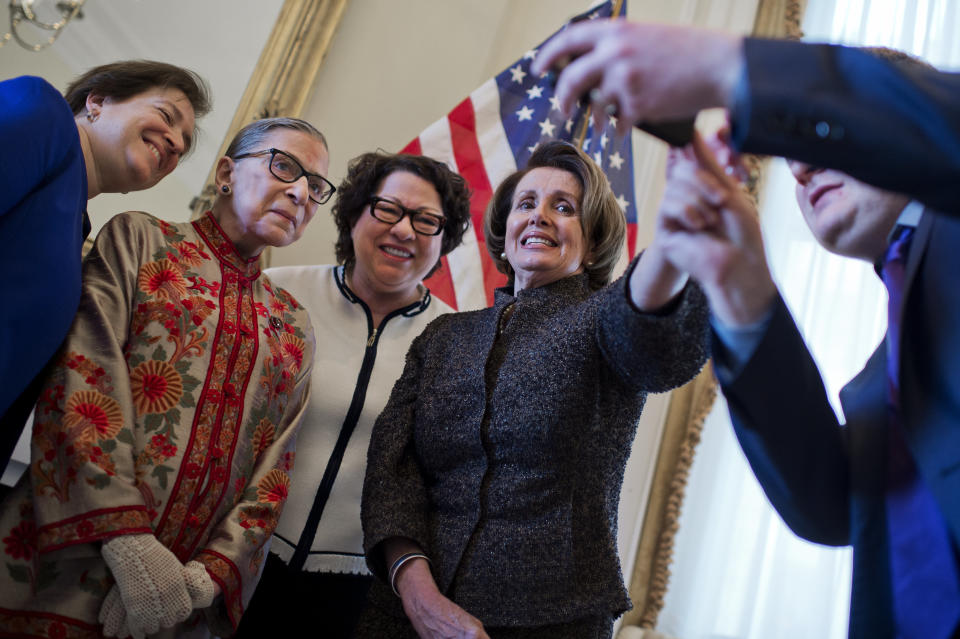
When Irish Ties Are Smilin'
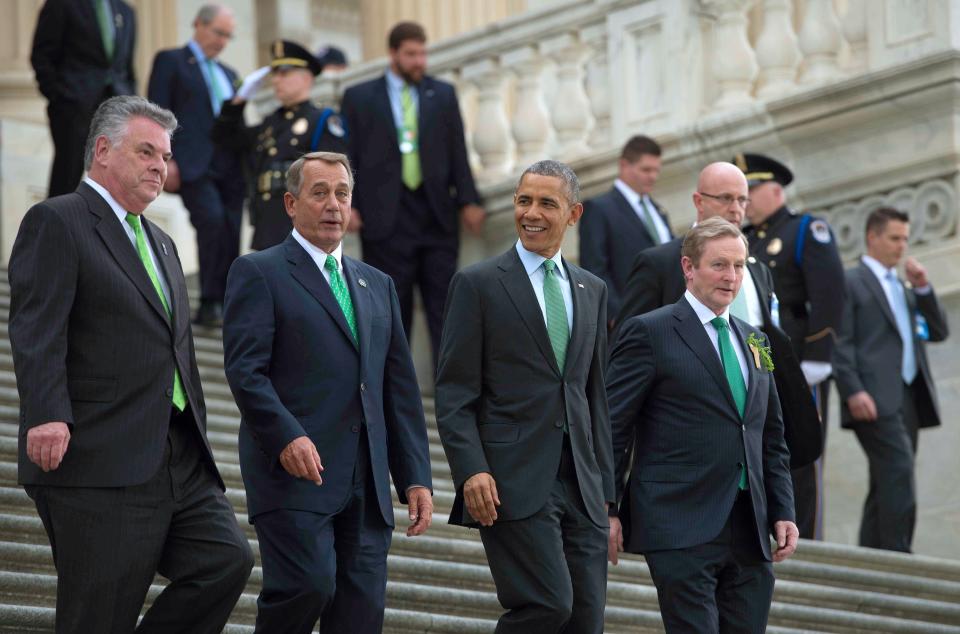
Colonial Visit For Marijuana
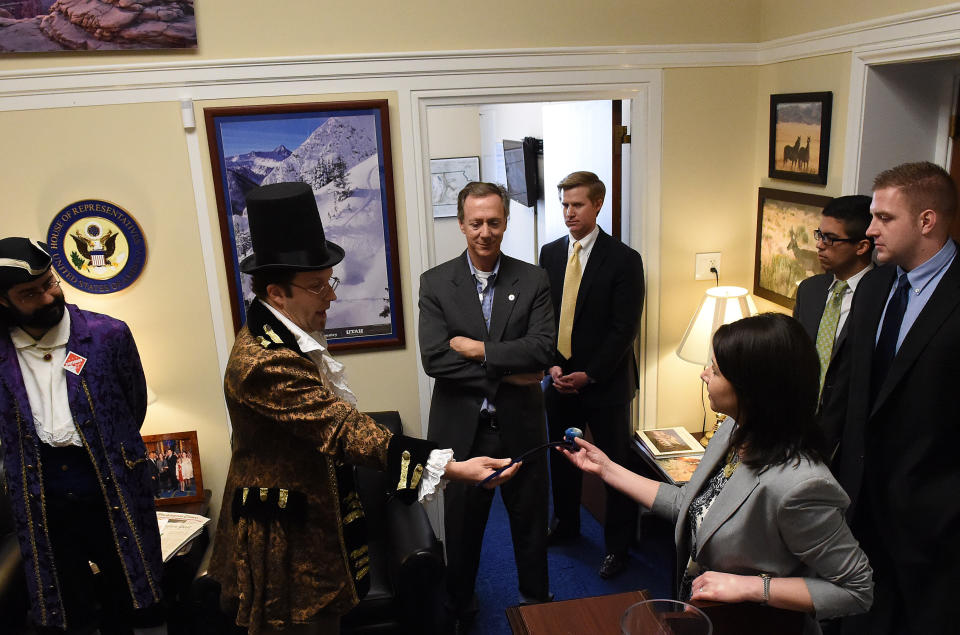
Goldendoodle

Code Pink
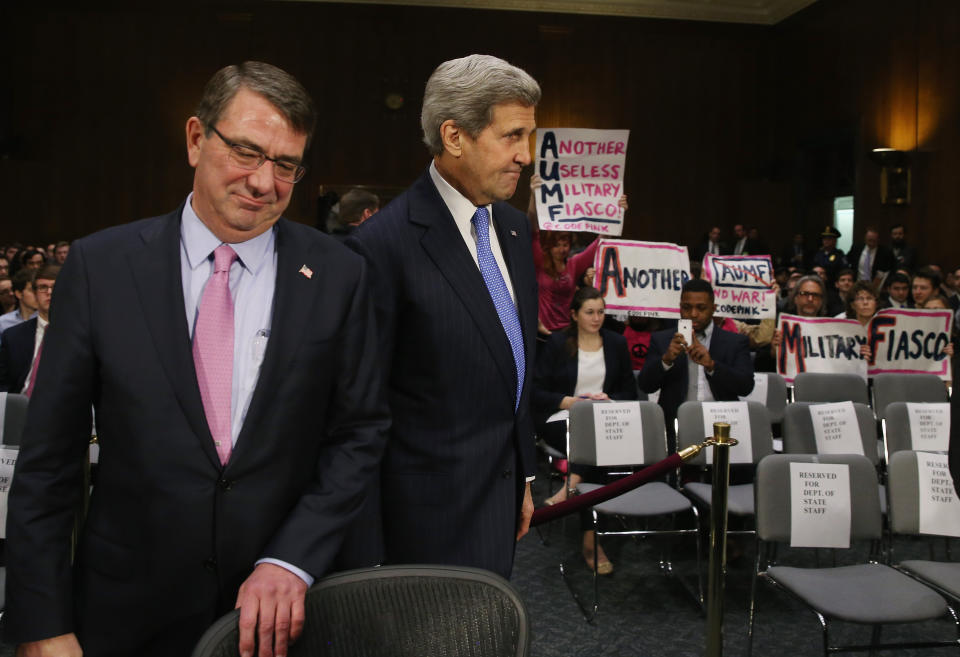
Cruz Waves

Warren Talks
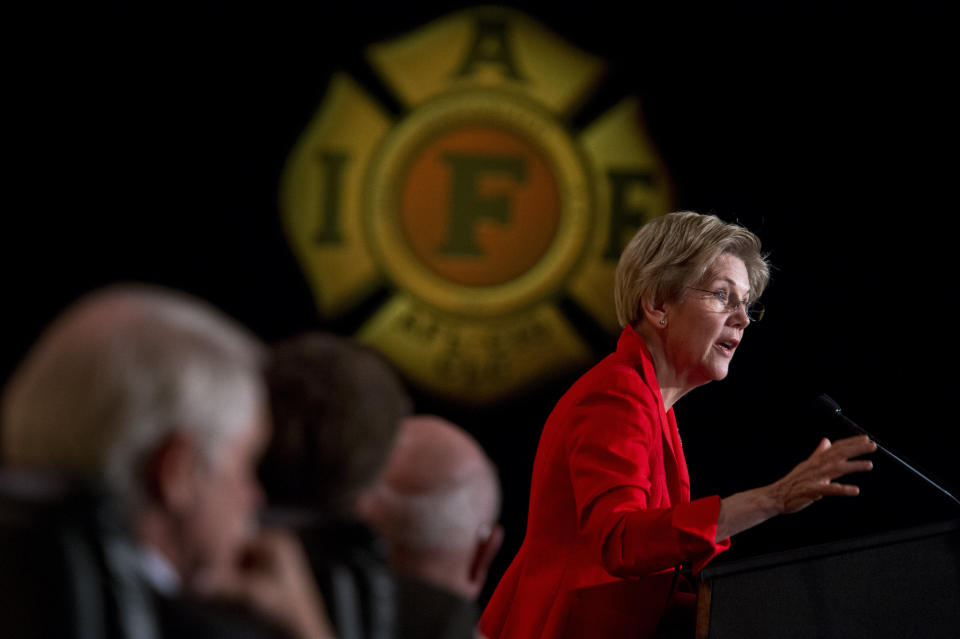
Speaking On Gun Control
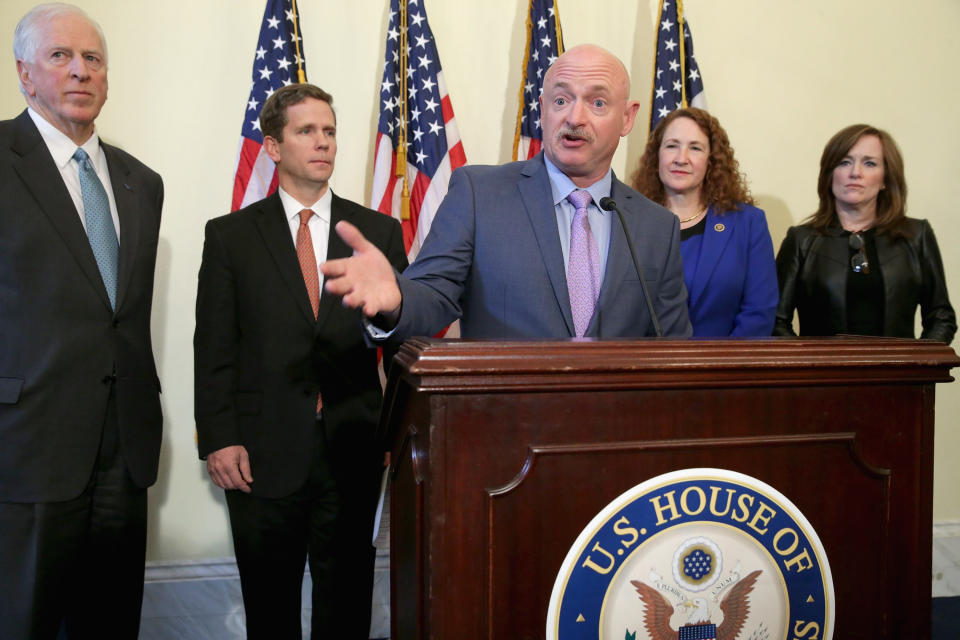
Selfie Time
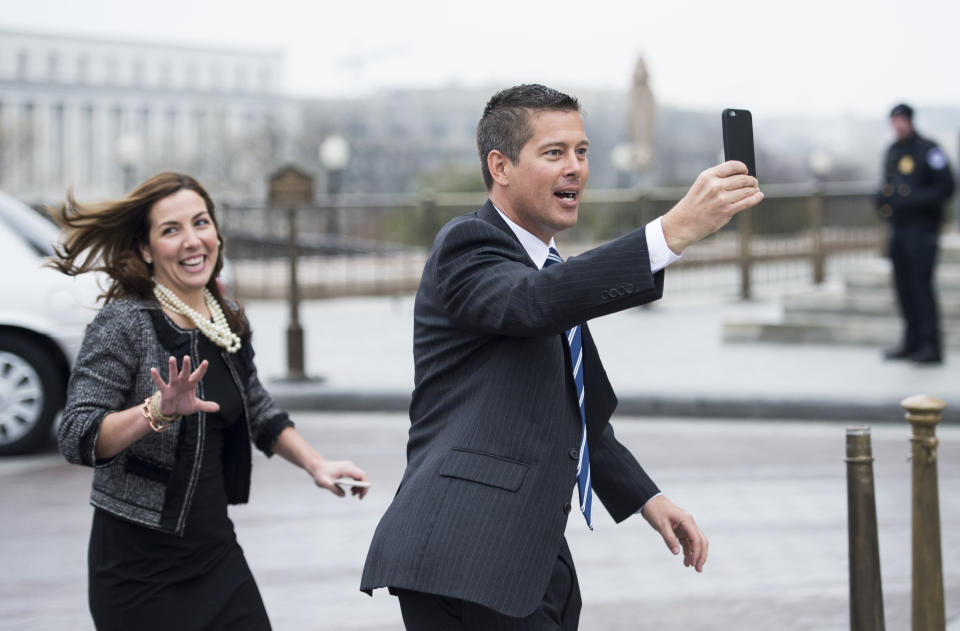
Giffords' Voice
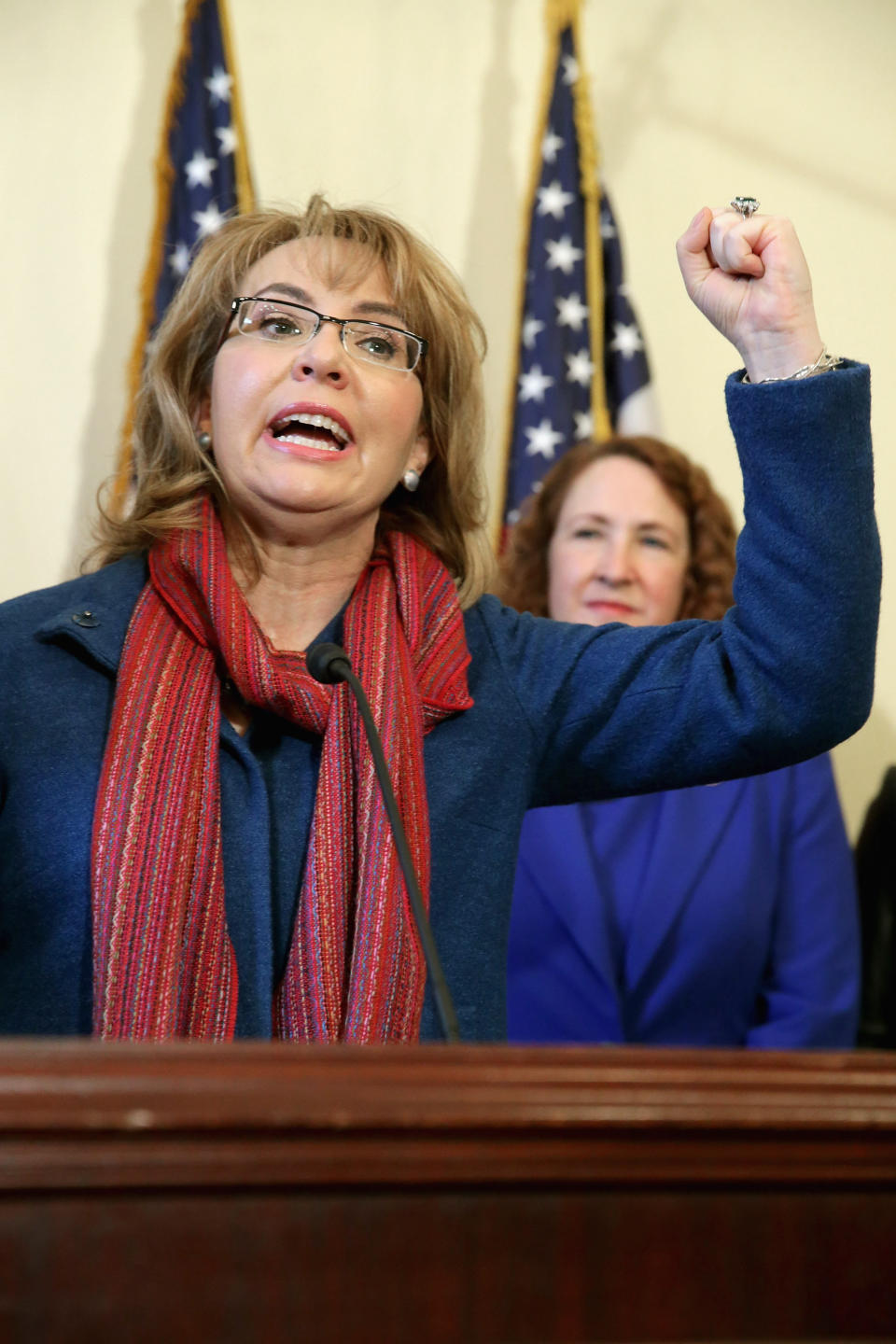
Netanyahu Speaks
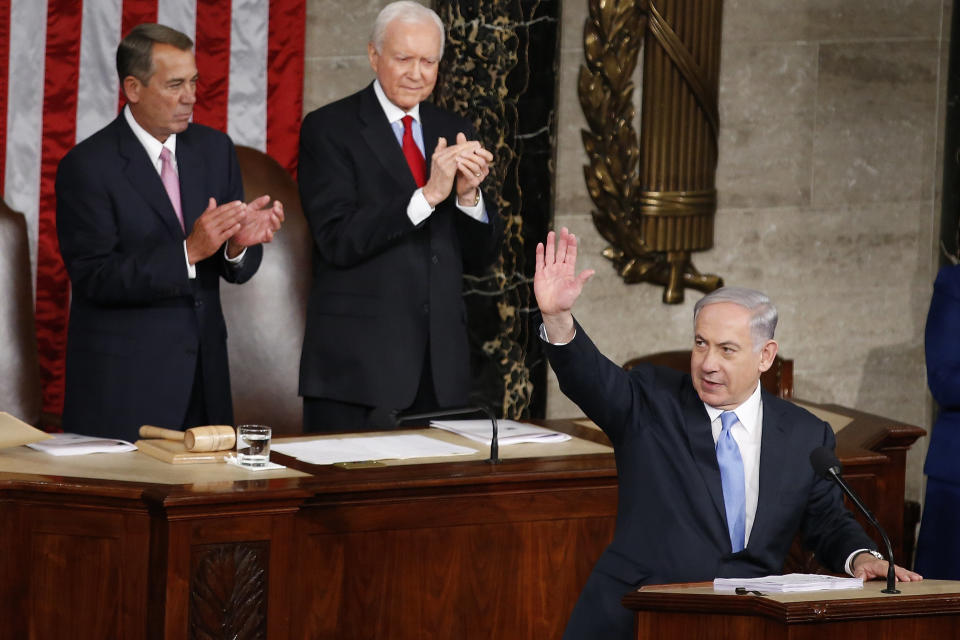
This article originally appeared on HuffPost.

